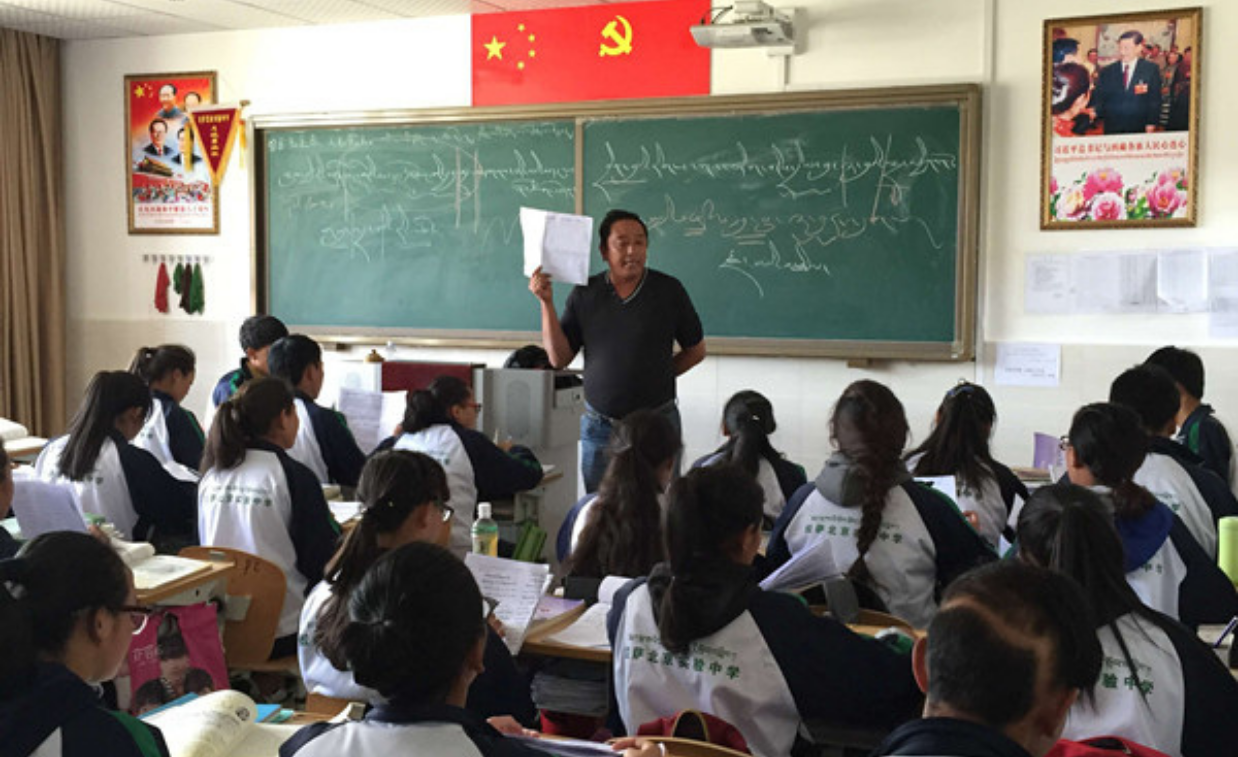
Teaching Tibetan Language in Tibetan Schools Declared “Unconstitutional”
The move is part of a wider effort by the CCP to assimilate Tibetans into a Chinese national identity
The pronouncement, reported by the Tibetan Centre for Human Rights and Democracy (TCHRD), was made by the National People’s Congress, in January, and appears to be part of a wider effort by the Chinese Communist Party to assimilate minority nationalities into a single Chinese national identity.
On 20 January, the Director of the Legal Affairs Committee of the National People’s Congress, Shen Chungyao, announced that schools in “minority areas” were no longer allowed to teach their own languages, declaring such education to be “unconstitutional”. In a report that he presented, Shen emphasised the superiority of national laws over local laws in autonomous provinces and regions by stating that all local regulations violate “the country’s major reform directions” and “the provisions of the higher-level law”.
This is not the first statement targeting the status of “ethnic minority” languages, a category that includes Tibetan. On May 2019 in Golog Tibetan Autonomous Prefecture, an order was given requiring all schools from the first grade to the middle level and at county- and township-level to stop teaching subjects in Tibetan. The only exception was for classes where the subject itself was Tibetan. The reasoning given by local authorities is that it would “provide more academic opportunities for the students”. In practice, and as highlighted by TCHRD, such policies have an adverse impact on Tibetans’ linguistic and cultural identity.
In 2010, a similar directive was launched, promoting the introduction of the Chinese language as the main medium of instruction for teaching. It prompted numerous peaceful protests by middle school students in the regions of Golog, Chabcha and Rebgong, among others, dissuading authorities from pushing it further. In 2001, an amendment ruled that “beginning in the lower or senior grades of primary school, Han language and literature courses should be taught to popularise the common language used throughout the country and the use of Han Chinese characters.”
This new statement was issued days before the release from prison of language rights advocate Tashi Wangchuk. Tashi was arrested in November 2015, after the publication of an interview by the New York Times in which he talked about his peaceful language advocacy to protect the Tibetan language. He was found guilty of “inciting separatism”, a state security crime, and was sentenced to five years in prison. He was finally released on 28 January 2021, five years and one day after he was detained.
Information supplied by Tibet Watch

